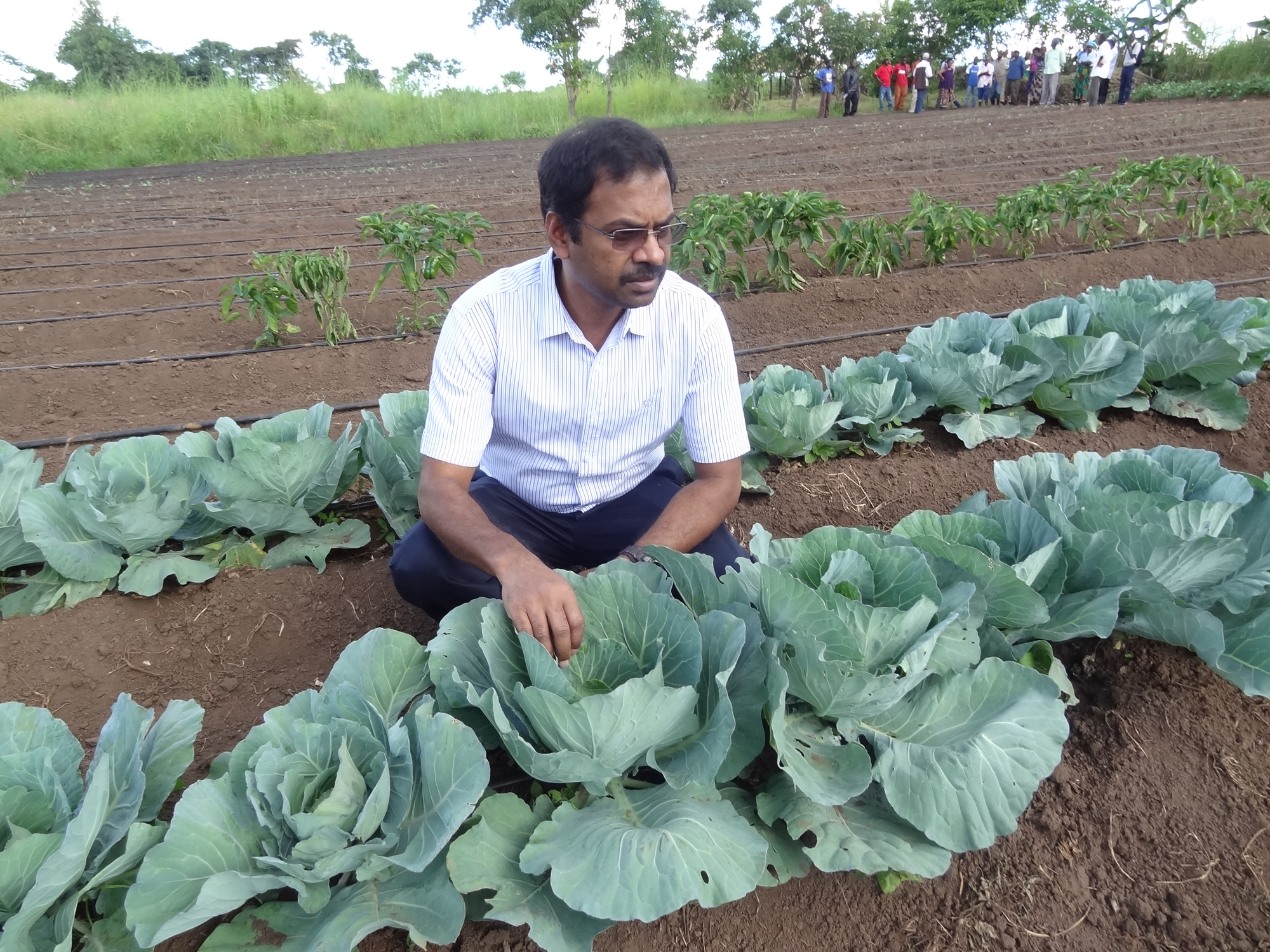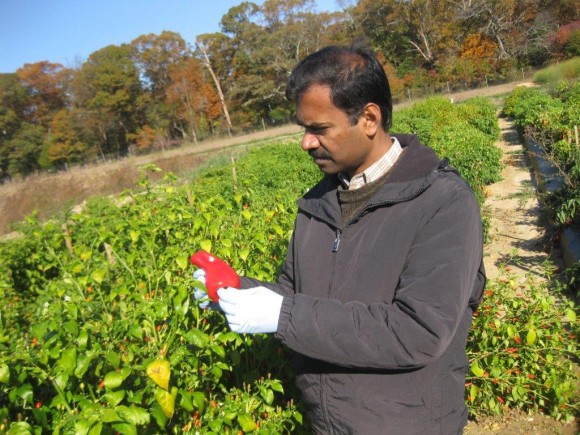
Ramu Govindasamy in 2017 inspecting production trial plots during a marketing training session for smallholder farmers in Zambia.
Rutgers University is partnering with New Jersey Department of Agriculture, the Pennsylvania State University, Farmer Direct Marketing Association, and other local stakeholders to lead a new project to expand value‐added marketing opportunities for small famers in the Mid‐Atlantic region of the U.S.
Ramu Govindasamy, professor in the Department of Agricultural, Food, and Resource Economics, is principal investigator of the USDA-funded project, “Local Food, Direct Marketing, and Agritourism Activities as Value‐Added Opportunities for Small Farmers in the Mid‐ Atlantic United States.”
“The overall goal of this project is to establish and develop a successful partnership fostering collaboration and sharing of best practices of local food direct marketing and agritourism activities, with a focus on boosting small farm profitability in the mid-Atlantic U.S,” says Govindasamy.

Ramu Govindasamy examines a pepper fruit from the exotic pepper plot at RAREC.
This study focuses mainly on documenting the characteristics of patrons, product attributes of local food direct marketing outlets and developing forecasting models to predict customer base, patronage rate, spending behavior, and other related characteristics so that the farmers can better target specific population segments to increase profits.
“The results of the study will help to form a coalition of all relevant stakeholders in the mid-mid-Atlantic U.S to promote direct marketing and agri-tourism industry in the region,” adds Govindasamy.
The two-year project is funded at $98,488 by the Agricultural Marketing Service of the USDA, through the Federal State Marketing Improvement Program and includes co-investigators Brian Schilling, Richard VanVranken, Isaac Vellangany, Steven Komar, Joe Atchison, Peter Nitzsche, Hemant Gohil and consultant Kathleen Kelley.
According to the USDA’s Small Farm Commission Report, the steady decline of the viability of the small farm economy has negatively impacted the health of the environment, farmworkers, and communities. The report further determined that global operations and interests are increasingly replacing local production and distribution as small and medium farmers are regularly squeezed out of business by high input costs, low prices for their products and poor access to markets. In addition, agribusiness mergers and consolidations result in the loss of market competition and fair market access for independent farmers.
The report further calls for USDA to “develop an inter-agency initiative to promote and foster local and regional food systems featuring farmers markets, community gardens, Community Supported Agriculture, and direct marketing to school lunch programs,” which is the focus of this new Rutgers-led project.
The concept of local food direct marketing is popularly used as a mechanism to connect farmers to customers, resulting in enhanced profitability for local farms. Local food direct marketing allows farmers, especially those in the mid-Atlantic states in the U.S., to capture a greater share of marketing margin instead of spending on the packaging, marketing, transporting and other services needed to bring farm products to the consumers.
As Govindasamy explains, since mid-Atlantic U.S consumers appreciate the quality and value of sourcing fresh agricultural products directly from the farmer, they are also open to patronizing other unique farm-based activities such as agritourism, community-supported agriculture, and pick-your-own.
These economic opportunities can motivate farmers to identify consumer trends, shopping habits and value-added product purchasing demands to enhance their direct marketing efforts towards profitable on-farm agricultural activities.

